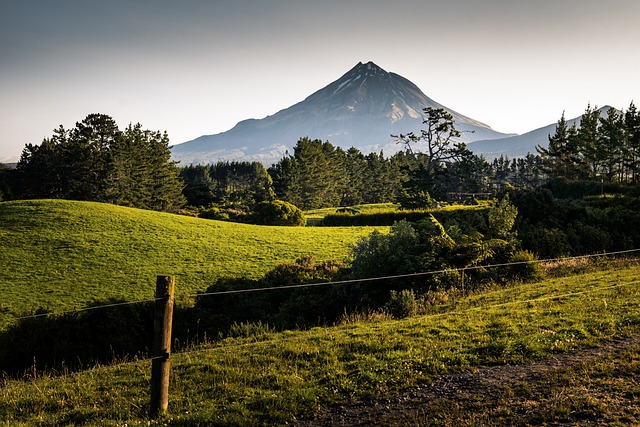This Content Is Only For Subscribers
Taranaki regional development agency, Te Puna Umanga Venture Taranaki, unveiled the latest economic insights and explored future opportunities for the region at sold-out event, Positioning for the Future, on Thursday, July 4.
Facilitated by Venture Taranaki CEO Kelvin Wright, the event highlighted the latest economic figures and analysis from the Winter 2024 Taranaki Trends publication, along with findings from the June Taranaki Business Survey, revealing business confidence in Taranaki has declined, with just 25 per cent of respondents expecting an improvement in business conditions (vs. 35 per cent in November 2023).
David Downs, CEO of New Zealand Story and outgoing Venture Taranaki Board Deputy Chair, then delivered a thought-provoking keynote presentation, exploring what makes Aotearoa New Zealand special, how we’re perceived internationally and how we can leverage both perceptions and misconceptions to stand out in a competitive global market.
“Businesses and households across Taranaki are certainly feeling the pressure of the current economic conditions,” says Te Puna Umanga Venture Taranaki CE Kelvin Wright.
“It’s a tough environment for businesses and the downturn in confidence found in our six-monthly Taranaki Business Survey reflects the real challenges they are facing every day, from rising operating costs to a tightening labour market.”
The latest figures also show GDP in Taranaki is down 0.3 per cent (year to March 2024), a greater decline than in New Zealand (0.2 per cent), while inflation (Consumer Price Index) is starting to ease but remains above ideal levels at 4 per cent.
However, on a positive note, Taranaki was ranked the third-highest region in New Zealand for visitor spend growth, up 5.9 per cent (year to May 2024). While International spend was up 68 per cent, this is the highest growth across all 16 regions in New Zealand.
“Tourism helps to support the vibrancy of our region and our internal economy,
says Kelvin.
“It’s fantastic to see the hard work of our destination team paying off with this strong growth in international spend post-COVID, indicating that Taranaki is resonating as an appealing destination for tourists as they seek out new and unique destinations.”
Meanwhile, consumer spending was also up 3.3 per cent, and the labour market shows resilience, with a slight increase in filled jobs (2.1 per cent) and a comparatively low unemployment rate of 3.3 per cent (vs. 4.7 per cent NZ average).
This was reflected in the Business Survey results as 64 per cent reported that the softening of national employment conditions has not affected their business or industry.
However ongoing struggles to recruit experienced and highly-skilled candidates were reported, and wage rates and staff costs are back on top as the number one concern for Taranaki businesses.
“It’s no surprise that staff costs are a primary concern, as the cost of living is being felt across the board driving up demand for wage increases, along with businesses already facing increased operating costs.
“The Go Local message is still as crucial as ever and I urge our community to be mindful and support local with their shopping choices to ensure we are retaining every dollar we can within our Taranaki economy, to support local jobs and enterprises.
“Despite these challenges, there is huge potential to lean into what makes Taranaki unique, combining our strong entrepreneurial spirit, engineering expertise, rich volcanic landscapes, and vibrant events scene to unlock new opportunities and emerging sectors, balancing the need to transition to a more sustainable economy while maintaining our famous Taranaki lifestyle.”
This sentiment was reflected locally, as the Business Survey included special topics on ‘Perceptions of Aotearoa New Zealand and Taranaki’. Respondents highlighted ‘ natural beauty and sustainable lifestyle’, ‘ future prospects to diversify industrial sectors’, and ‘ community collaboration’ as key positive perceptions of Taranaki that could be capitalised for future opportunities.
Many reported a strong sense of community togetherness and optimism toward leveraging regional strengths and skillsets in new ways.
David then joined the discussion, emphasising New Zealand’s global reputation as a trusted and honest place for doing business, built on our deep care for people and connection to place, and highlighted the importance of championing our own New Zealand Story.
“We are well known for our beautiful landscapes, but we need to expand on these known perceptions and further showcase our strengths in tech, innovation, and visionary thinking,” says David.
“It’s a common misconception that New Zealand is a small country, but our land mass is actually much larger than many global players, and we are consistently highly ranked in many areas that the world cares about, from human rights and business friendliness to our growing cultural diversity. These are all things I encourage you to harness and think bold in your future visions of what’s possible.”
“Many businesses are already making progress in this space, whether it’s upskilling their workforce, investing in tech and innovations, or diversifying land-use to explore high-value tourism and food and fibre possibilities,” says Kelvin.
“As we navigate through this transitional phase for the region, Venture Taranaki plays a pivotal role to monitor threats and identify opportunities for the region. We can then connect key partners to ensure a unified team Taranaki approach is taken to catalyse any opportunity.”
Venture Taranaki is actively working with regional partners to identify gaps and upskill local talent, along with progressing a refreshed regional strategy to ensure key sectors are supported, regional opportunities are realised, and the region is investment-ready.
“This involves working within our energy sector to ensure a sustainable transition for our workforce and businesses, diversification and optimisation of our land use, and implementing campaigns to enhance the region’s appeal as a fantastic destination to retain and attract talent, investment, and high-value visitors,” says Kelvin.



